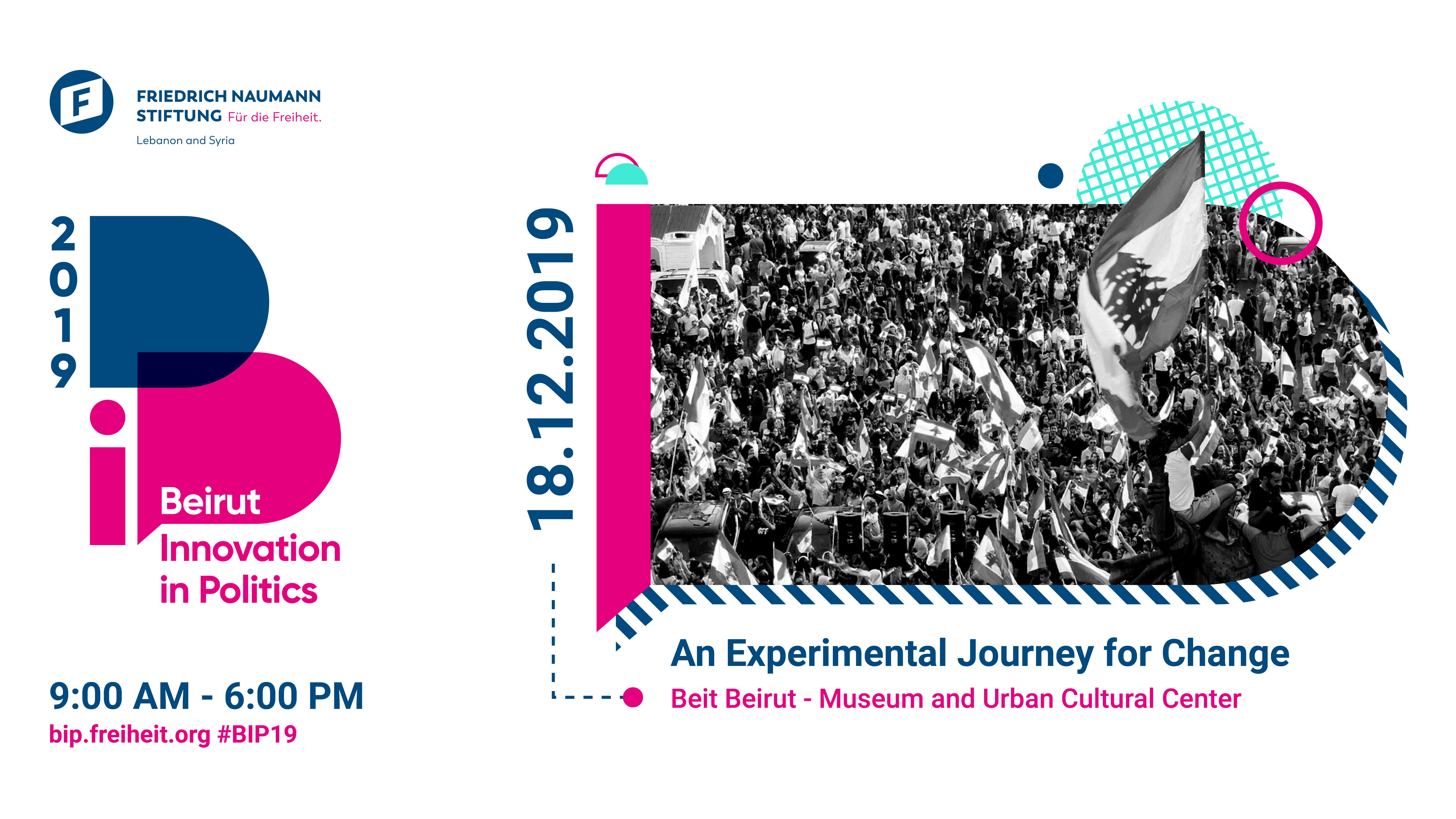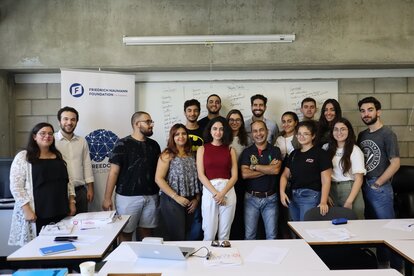#unitedNATIONSOFINNOVATION
Reversing the Approach: Shaping the Means for a Boosted End

Throughout the years the term innovation transferred out of the corporate sector to, and has evolved into, a watchword for the political sphere alike, creating new definitions to key concepts such as governance, global economy, inequality, and politics in its general term.
New governance strategies promote the innovation capacities of politics, arguing that these approaches are not only an alternative but should rather be seen as complementary. Developed countries were not only able to keep up with those changes but they participated heavily in defining them on different levels.
On the other side of the spectrum, countries like Lebanon and Syria, entrenched in their narrowed political, social, and economic challenges, have been always perceived as the receptors of those changes or as the followers of the emerging trends.On a global scale, this perception is not open for debate, however, the work with individuals on a micro-sociological scale creates an altered insight on what innovation means to Lebanon and Syria.
In order to answer this question, we at the Friedrich Naumann Foundation - Lebanon and Syria tried to reverse the approach. In our work, we never enforced innovation as the only approach to solve the historically entrenched problems or to meet certain needs. With our scope of partners from liberal political parties, active civil society organizations, and engaged individuals, we tried to ask the right questions and dissect their answers into precise steps and action plans. Our perspective of innovation can be considered participative, inclusive, and need-based, instead of a generalizing top-down scheme. Between the ranges of needs and multi-directional interests, the target groups have always resorted to innovation not only as an option but also as a solution to the challenges at stake.

Beirut Innovation in Politics
With the unstable situation in Lebanon and the uncertainties that come with the ongoing Lebanese Revolution, we launched the first edition of the Beirut Innovation in Politics (BIP) Forum. The BIP is an annual multi-format forum for committed and creative change-makers, concentrated on innovative solutions for pressing political challenges in Lebanon and the MENA region. By gathering international expertise from organizations, projects, companies, and individuals, BIP Forum exposes and debates innovation in politics in its practical and theoretical aspects. Throughout this one-day event, we aimed at identifying inventive approaches and methodologies from various backgrounds, contributing to an understanding of democracy, freedom, and innovation from different perspectives, especially in Lebanon and Syria. The entire event was structured into three chapters or areas: innovation & policy development, innovation & memory politics, and innovation & political communication. International experts such as Gordon Mackay, Secretary of Liberal International and Josef Lentsch, Managing Director of the Innovation in Politics Institute Germany have participated and shared their knowledge about innovative policy-making with a broad audience. Annelou van Egmond, Vice President of the ALDE Party Bureau conducted private consultancy sessions with political parties, civil society organizations, and grassroots initiatives on campaigns and strategies they are planning to launch or implement.
As part of the Beirut Innovation in Politics Forum, we had an extensive exhibition space for projects, initiatives, and companies to showcase their contribution to improve politics and public services. An interesting blend of exhibitors was part of this, including projects from Berlin and Budapest and an in-house FNF project: the Freedom Academy.
Freedom Academy was part of the chapter “innovation and policy development," which examined the concept of experimental innovation policy, monitoring of policy design and the process of implementation. Turning an idea into a solution that adds value to the community and influences stagnant policies and laws, is not only the core of innovation but also the objective of the Freedom Academy. For the year 2019, the theme was“Innovation in Cultural Policies”, aiming to re-innovate the Lebanese policies related to public spaces and their cultural values. At the end of this project the participants - 20 students and liberal political activists - submitted three opinion papers to liberal parties in the Lebanese Parliament focused on the innovation capacity of public space management.
With Beirut Innovation in Politics, we have identified and implemented social demands for platforms that enable a broad and diverse audience to discuss policy-making in different forms during times of the ongoing revolution.
Lebanon and Syria are far from being or even becoming the world’s top innovative countries in the near future. However, the interpretation of innovation in their contexts allows us to reflect on the role of such a concept in developing countries that is not only perceived as an end towards achieving economic development and growth but also as a means to advocate for civil rights and our ongoing mission to fight for freedomin in all its expressions.
